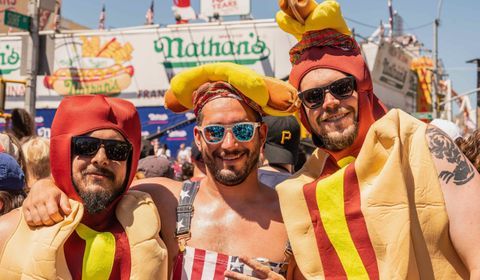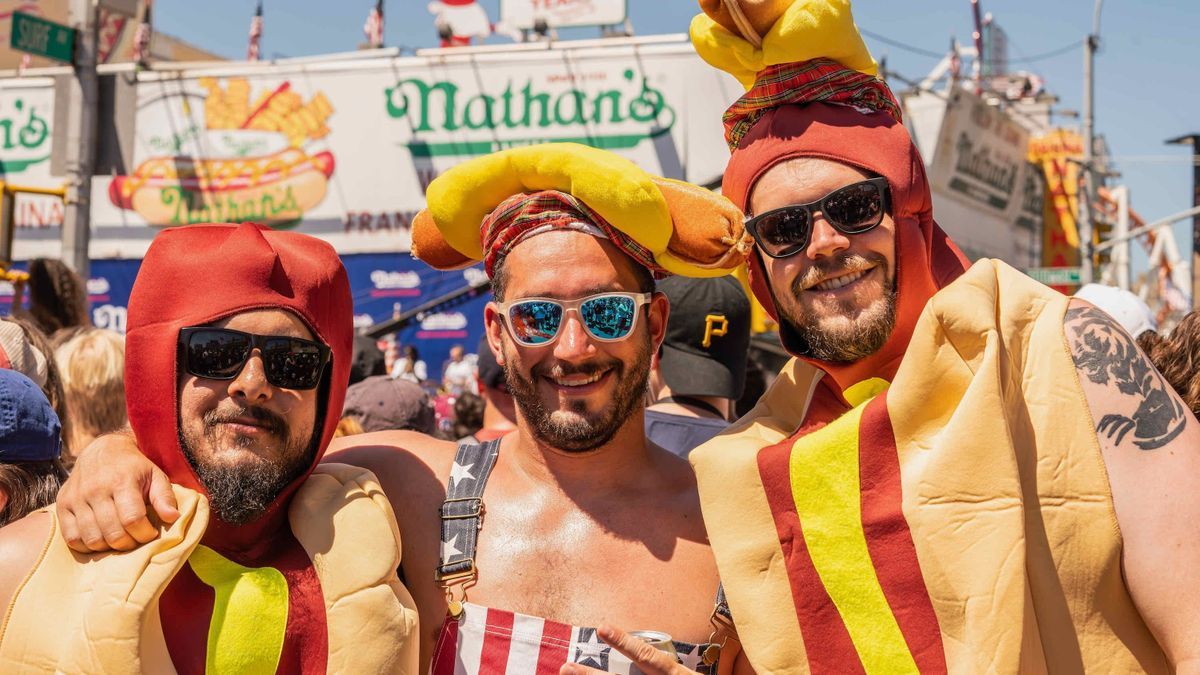
363 chicken wings, 68 hotdogs, 480 oysters, 73 burgers… These gargantuan quantities of food are gobbled up every year by thrill-seeking candidates. But as these extraordinary eating contests continue to become more popular, what are the risks involved? Answer.
While an Ariégeois won, on Tuesday May 21, the world championship of the most big eater of duck breast, this increasingly popular practice raises questions. What are the candidates’ motivations? And what are the risks to their health? Decryption.
Eating contests: a national sport
While lavish banquets where guests ate in large quantities were common in ancient Rome, it was not until the 19th century that eating contests really began to appear in the United States. At fairs and villages, contestants were challenged to eat as many pies or tarts as possible to celebrate the end of the harvest.
Today, this national “sport” has its own federation. More than 100 competitions are organized each year, all over the United States: Nathan’s in New York, Wing Bowl in Philadelphia or the Krystal Square Off hamburger contest in Tennessee.
If these competitions food make you smile, and are also successful in France (competitions for the biggest raclette eater, the biggest fondue eater, etc.), they nevertheless raise many questions. In addition to the ethical problem that this type of competition raises, the risks to the health of the candidates are real.
Candidates who put their health at risk
On Slate Science journalist Jason Fagone, author of The Riders of the Esophagus recounts the terrible damage caused by these excesses: jaw injuries, poisoning, deaths from suffocation…
“Participants are tempted to challenge the physical limits of their bodies“, he analyzes.
These contests can also lead to abnormal distention of the stomach, responsible for indigestion, nausea, vomiting (disqualifying during competitions), abdominal pain and stomach perforations.
In the long term, eating very large quantities can also promote the appearance of cholesterol, diabetes and morbid obesity .
NO to diets, YES to WW!
A personal challenge, which allows you to test your limits
Beyond the disastrous health consequences of these competitions, the biggest eater contest also raises psychological questions. What motivates the candidates? What pleasure(s) do they find in it?
“In my opinion, for many of them, the big eating contest represents a personal challenge. It is a way to test your physical and mental limits, a way to surpass yourself. To see how far you can go! The satisfaction of managing to eat an enormous, extraordinary amount of food can provide a sense of accomplishment and pride,” confides Amélie Boukhobza, psychologist.
Other pleasure(s) induced by competition: “The associated adrenaline, but also the desire to compete against others and emerge victorious can be extremely rewarding and exciting!“, adds the expert.
“Participating and above all winning can surely bring a certain notoriety. To a rather friendly and festive event! For some, it is an opportunity to meet other enthusiasts and share experiences. I also imagine that there are rewards: money, trophies or others…“, she explains further.
Finally, the simple fact of sitting down at a table has (also) something to do with it.
“Certainly for some, the simple pleasure of eating large quantities of food that they love is a source of satisfaction. The euphoria of victory and the pride of showing that one is the strongest have a lot to do with it: a dopamine rush that is extremely pleasant. It is the pleasure of success, of accomplishing a goal and the recognition of one’s peers”, notes the specialist in conclusion.
Arguments that would (almost) make us want to get started…

